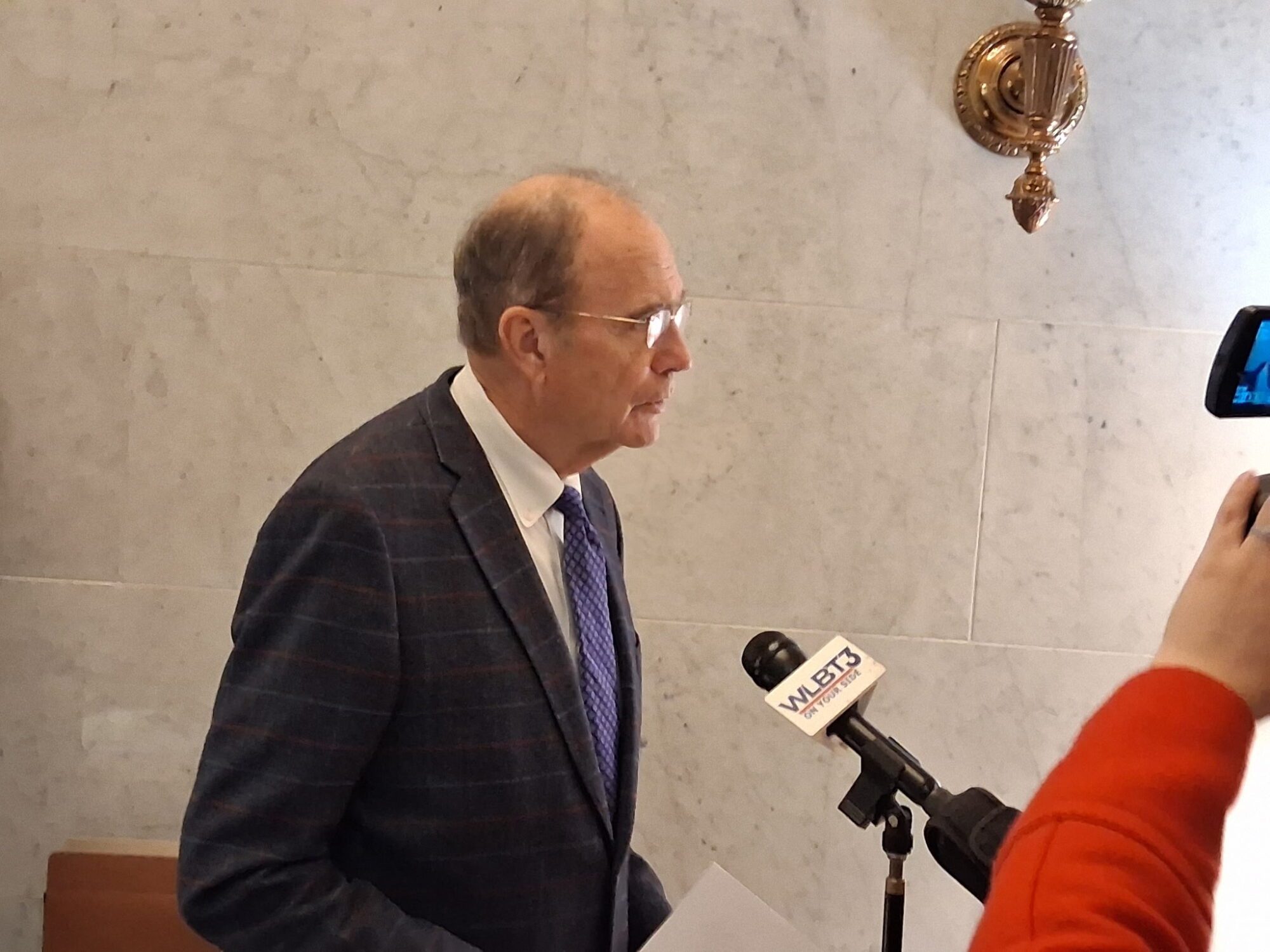In Pascagoula, Superintendent Wayne Rodolfich presented an opening day slideshow to educators and school board members in hopes of inspiring them as they once again face another school year. The presentation, many said, was one of the best they had seen. However, one element of the presentation has divided this coastal community.
Nestled into Rodolfich’s opening day presentation was information from The Parents Campaign on what this group says are legislators’ educational voting records along with a grade given by the group.
This doesn’t appear to be an isolated incident. There is a developing narrative in a growing number of school districts in Mississippi centered around such presentations which included elements of a political nature at teacher and staff meetings just prior to last Tuesday’s primary election.
It appears that school administrators used information taken from The Parents Campaign and presented it to their staffs while on school property and on the taxpayers’ clock.
The Parents Campaign parades itself as a non-partisan coalition, but most political observers around the state could argue such a description, what with their paid lobbyist and political affiliations. Add in the fact that this group is solely focused on one issue while not welcoming explanation or reasoning behind legislative votes, and the argument could be made that such a presentation using this information is definitely politically slanted.
Whether The Parents Campaign is non-partisan or not isn’t the point, however; school board policies were broken and, given the nature and timing of the presentations, the intent was obvious. While no official candidate endorsements have been reported, to say that such activity was not intended to sway these educators’ votes on the eve of an election would be burying one’s head in the sand.
According to the Pascagoula School District’s policy manual, “school property and school time shall not be used for political purposes.” It goes on to say, “Public funds cannot be used for political activity of any kind by any person or organization involved in the administration of public school assisted programs.” Many districts around the state have a similar policy.
Now the Pascagoula school board is debating what the phrase “political purposes” means. They have asked their board attorney to clarify this phrase in the board’s policy.
Pascagoula school board Attorney Kelly Sessoms said that he had not drafted a written opinion but as he does, he will seek to determine what the phrase means as it relates to school districts. He noted that the IRS says political activity is campaigning on behalf of a candidate and that Rodolfich had not done that, in his opinion, in the presentation. Sessoms said that school districts are permitted to present “non-partisan, informative” presentations.
The administration and some teachers argue that the short presentation was informative and helpful, and should be allowed to educate them on the issues, calling themselves “the public.”
Two Pascagoula school board members have taken issue with the presentation. Both were in attendance for the presentation and then spoke out at a recent school board meeting. School board member Jennifer Colmer stated that “at worst board policy was broken, and at best we were operating in a grey area.” Fellow board member Sonny Backs stated, “I personally think it was,” referring to breaking policy. He went on to say, “It’s not our job to inform the public on voting records.”
The two are facing an uphill battle to correct this matter; their other three colleagues on the board voiced support for the administration’s actions.
All of this came to light after many teachers in the district were offended by the presentation and a tip was made to the local newspaper, The Mississippi Press. The paper ran an initial story then ran reactions by local officials and also printed an editorial bemoaning the political portion of the school administration’s presentation. Since that time, the reporter who broke the story and the editor have been chided by at least one school board member. It would now appear that the local paper will disengage from the story and let the matter run its course.
Public officials, which include school board members, should never attempt to prevent the press from doing their job, whether those officials like the story or not. Freedom of the press is one of America’s most cherished ideals.
Many locals are not content to let this matter be swept under the rug, nor should they be. It is a symptom of a larger problem in this state and nation. Too many only see the trees in front of them, all the while ignoring the forest all around them.
Desoto County is another area where it is being reported that The Parents Campaign materials were displayed.
Most pundits around the state were in shock last Tuesday to hear that state Senator Doug Davis had lost his bid for reelection. Stories quickly emerged that the loss was education related.
Bobby Harrison opined on this very issue in a piece posted in the Northeast Mississippi Daily Journal entitled “Education politics helped beat Sen. Doug Davis.” Harrison says, “It is rare that someone of Davis’ influence in the Legislature loses an election. But it appears that Davis lost basically because the powers that be in fast-growing DeSoto County – including elected School Superintendent Milton Kuykendall – felt he did not do enough to support funding their public schools.”
So the questions come:
– Should school superintendents be allowed to show politically charged materials of any nature (partisan or “non-partisan”) to teachers and staffs on school property while on the taxpayers’ clock?
– Is it the job of school administrators to educate their staffs and the public on political issues and legislative voting records or should they be solely focused on educating children while on the job?
– Is it wrong for local school board members and administrators to pressure local news outlets not to research and report on such stories?
– Did your local school district do something similar?
I would argue that educators should be concerned with local and state politics; after all, much of what is debated directly impacts their livelihoods. But such voter education and research should be done on one’s own time, not while on the taxpayers’ clock.
No parent wants to send their child to school worrying about what political ideology little Suzy brings back home. Schools should be havens of fact based learning, not centers of political indoctrination, whether in the students or the teaching staff.
Further, seeking to sweep the issue under the rug stinks of what many would call “good ole boy” politics. Mississippi must rise above such deceitful practices for the betterment of our collective futures.
School administrators must own up to their mistake and implement controls so such activities do not happen again. Staying apolitical is the challenge. There is a time and place for everything, and politics on school property on the taxpayers’ clock isn’t the time or the place.






